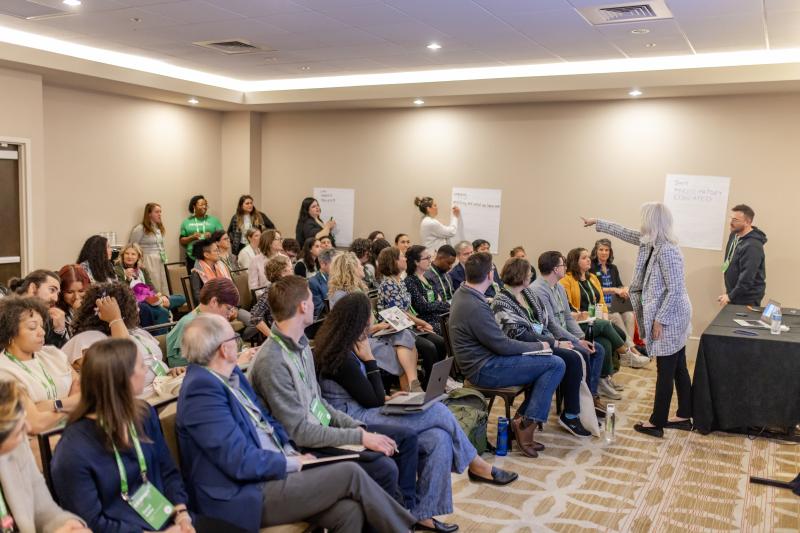Attending Compact24: Civic Learning through a Lens of Racial Equity
By: Kristina Lizardy-Hajbi, Coordinator, Certificate in Latinx Studies, DU/Iliff Joint PhD in the Study of Religion; Associate Professor of Leadership and Formation, Iliff School of Theology

Thanks to the generosity of CCESL, I was able to attend Campus Compact’s annual conference, Compact24, this April in downtown Denver. The theme of this year’s gathering was “Higher Education and Community Engagement as the Way Forward,” and individuals from higher education and community and nonprofit organizations across the country were in attendance.
This was my first time going to this conference, though I had heard much about it previously. Having been involved in multicultural student affairs work roughly fifteen years ago, I was somewhat familiar with the world of community engaged learning at the undergraduate level. However, my doctoral program in education solidified the value of experientially-based, whole person learning within the context of community. Now, as a faculty member in the DU/Iliff Joint Doctoral Program (JDP) in the Study of Religion, community praxis has come full circle for me in coordinating the program’s Certificate in Latinx Studies. Like most fields, religion is not something one can simply learn about from books or articles. Religion is a living, dynamic, embodied experience of belief and practice within community. Particularly for a certificate in Latinx studies related to religion, engagement directly with Latinx religious communities is an essential element of not only learning about Latinx religion, but also learning with(in) the community. Thus, we require that students “demonstrate active engagement within a Latinx community before or during the doctoral program and submit a 5–8-page paper detailing the experience and how it relates to one's area of academic interest in Latinx Studies.” This is in addition to the requirement of demonstrating competency in the Spanish language in order to fully participate linguistically within the community.
Thus, creating and maintaining connections with community partners is vital for student learning and formation. More than that, however, is the importance that such partnerships be relational and mutual, which takes time, energy, and an ongoing willingness to engage in conversation, cultivation of trust, and—perhaps most importantly—a practice of presence. All of this is for both student and community enrichment. In this regard, one of the most salient sessions I attended was a pre-conference institute entitled “Anti-racism Community Engagement Principles & Practices,” which dove into case studies from a newly published book of the same title. The book’s editors outlined a set of four principles for anti-racist community engaged work: (1) Counteracting the Persistence and Impact of Racism on our Campuses and in our Community Engagement, (2) Critical Reflection on Individual and System/Structural Racism, (3) Intentional Learning/Course Design, and (4) Compassionate/Reflective Learning Spaces. Within these four principles are 21 components for deepening vivid learning through a lens of racial equity, and one of these components is that “students need to work with (not on or for or to) others to make a difference.” Whether or not students in the certificate program engage with a Latinx community toward change or simply spend time within a particular context for the sake of learning, it must always involve a with(in)-ness that allows for mutual learning and trust.